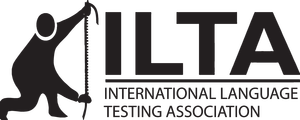We are very pleased with the review that Alan Urmston recently wrote in the Journal of English for Academic Purposes. You can read it here: Book review: Assessing Academic Literacy in a Multilingual Society: Transition and Transformation.


We are very pleased with the review that Alan Urmston recently wrote in the Journal of English for Academic Purposes. You can read it here: Book review: Assessing Academic Literacy in a Multilingual Society: Transition and Transformation.

… but only until 31 March!
There is a publisher’s discount on the book that I, John Read and Theo du Plessis have recently edited for Multilingual Matters. It is entitled Assessing academic literacy in a multilingual society: Transition and transformation.
Watch the video and then order the book!
Continue reading
The journalist and scholar H.L. Mencken (1880-1956) once observed that “For every complex problem there is an answer that is clear, simple, and wrong.” One would think that academic literacy, the ability to use academic language competently, would be the first and only language concern of the academic communities that make up the university. Such is the complexity of language problems, however, that not all solutions for them will have to do with making education and study more effective. Student communities may, for example, make language demands that are primarily politically inspired, and have little bearing on scholarship. When decision-makers yield to the politically expedient solution, that solution may be rationalized in many ways that might have the pretence of having to do with education, but that actually has no theoretical justification. There are at least two recent cases in South Africa where the language policies of universities were changed for reasons other than academic ones, with negative consequences that were foreseen, but ignored. Continue reading
 Responsible design of language plans, courses or tests starts with the employment of one’s technical imagination, while allowing the design to be guided by the following principles: Continue reading
Responsible design of language plans, courses or tests starts with the employment of one’s technical imagination, while allowing the design to be guided by the following principles: Continue reading
 The Code of Ethics of the International Language Testing Association (ILTA) is a guide to language testers of how they should conduct their business in ways that are caring and compassionate, and at the same time deliberate and professional. It is complemented by locally formulated Codes of Practice. The Code of Ethics is already available in eleven languages.
The Code of Ethics of the International Language Testing Association (ILTA) is a guide to language testers of how they should conduct their business in ways that are caring and compassionate, and at the same time deliberate and professional. It is complemented by locally formulated Codes of Practice. The Code of Ethics is already available in eleven languages.
A team of South African translators, Sanet Steyn and Gini Keyser, tasked by the Network of Expertise in Language Assessment (NExLA), did the initial translation of the Code of Ethics into Afrikaans. Then Colleen du Plessis, Albert Weideman, and language policy specialist Theo du Plessis produced a further two drafts. The fourth draft of the Code is now being presented to the language testing community at large, and has been placed on the NExLA website for comment. Continue reading
 Returning to the still unresolved issue of how best to conceptualize test validation and validity, I attempt to answer this question in a special issue of Language & Communication that commemorates the work of the late Alan Davies. In particular, I argue that responsible test design encompasses ethicality and accountability, and is a conceptually clearer way of thinking about the quality of a language test.
Returning to the still unresolved issue of how best to conceptualize test validation and validity, I attempt to answer this question in a special issue of Language & Communication that commemorates the work of the late Alan Davies. In particular, I argue that responsible test design encompasses ethicality and accountability, and is a conceptually clearer way of thinking about the quality of a language test.
Elsevier, the publisher of the journal, has generously, though for a limited period, provided unlimited access to the article that I contributed to this commemorative issue. The final published version of the article, “Does responsibility encompass ethicality and accountability in language test design?” is available until 17 December to anyone who clicks on the following link: https://authors.elsevier.com/a/1Vy-wzlItpy~5. No sign up, registration or fees are required – you can simply click and read.
This is to share two thoughts with you.
First, that it’s time for language test developers in South Africa to begin to evaluate the ethicality of their assessment practices with reference to international codes, and second, to consider what local and contextual conditions might further shape our design work.

Does the South African language testing community need a Code of Ethics? That need has just been brought into focus again by an invitation from Tineke Brunfaut, coordinator of a project of the International Language Testing Association (ILTA; http://www.iltaonline.com/) aiming to have the ILTA Code of ethics translated into more languages, to translate it into Afrikaans. Continue reading
 Is a theory of applied linguistics desirable? And if so, is it possible? My new book, Responsible design in applied linguistics: theory and practice (2017; Springer) proceeds from the thesis that applied linguistics needs a theoretical foundation. It is indeed possible to delineate its work (and specifically distinguish it from linguistics). Providing it with a theoretical foundation might additionally yield new insight into the principles that underlie applied linguistic designs. Those designs we encounter as the interventions that we call language courses, language tests and language policies. Continue reading
Is a theory of applied linguistics desirable? And if so, is it possible? My new book, Responsible design in applied linguistics: theory and practice (2017; Springer) proceeds from the thesis that applied linguistics needs a theoretical foundation. It is indeed possible to delineate its work (and specifically distinguish it from linguistics). Providing it with a theoretical foundation might additionally yield new insight into the principles that underlie applied linguistic designs. Those designs we encounter as the interventions that we call language courses, language tests and language policies. Continue reading
 Avasha Rambiritch of the University of Pretoria and I have just written a chapter for a book edited by John Read (Post-admission Language Assessment of University Students, Springer, 2016) that shows how making sufficient information available about the conception, design, development, refinement and eventual administration of a test of language ability — in other words “telling the story of a test” — is the first step towards ensuring accountability for such tests. The test in question, the Test of Academic Literacy for Postgraduate Students (TALPS), is used to determine the academic literacy of prospective postgraduate students. For the full reference, see the bibliography on this site. Continue reading
Avasha Rambiritch of the University of Pretoria and I have just written a chapter for a book edited by John Read (Post-admission Language Assessment of University Students, Springer, 2016) that shows how making sufficient information available about the conception, design, development, refinement and eventual administration of a test of language ability — in other words “telling the story of a test” — is the first step towards ensuring accountability for such tests. The test in question, the Test of Academic Literacy for Postgraduate Students (TALPS), is used to determine the academic literacy of prospective postgraduate students. For the full reference, see the bibliography on this site. Continue reading
The assessment of the 11 “home languages” at the end of secondary school in South Africa is patently unfair. That is the finding of a recent investigation that Colleen du Plessis (UFS), Sanet Steyn (NWU) and I report on in an article that has just been published on LitNet Akademies. The Grade 12 exit examinations are high stakes assessments, since the Home Language mark contributes disproportionately to the index on the basis of which access is granted to higher education (or entry into the world of work). They are unfair, because they are not equivalent: in some languages one has a much better chance to pass than in others. Continue reading